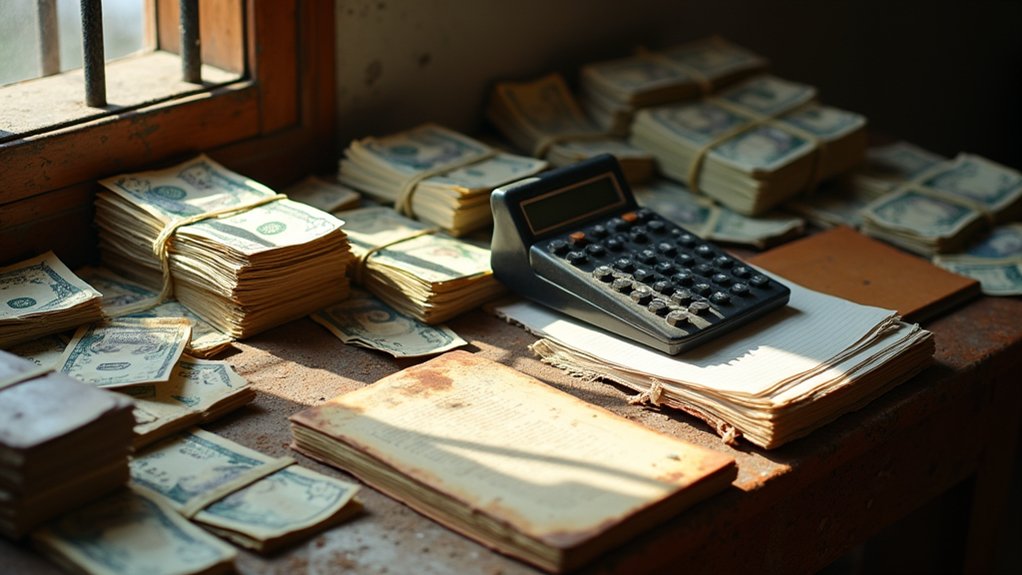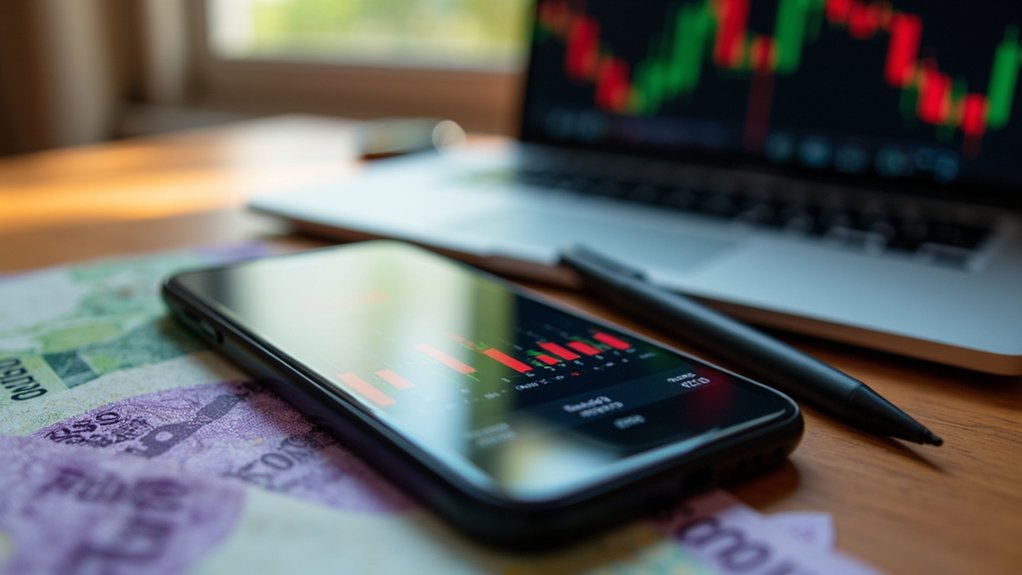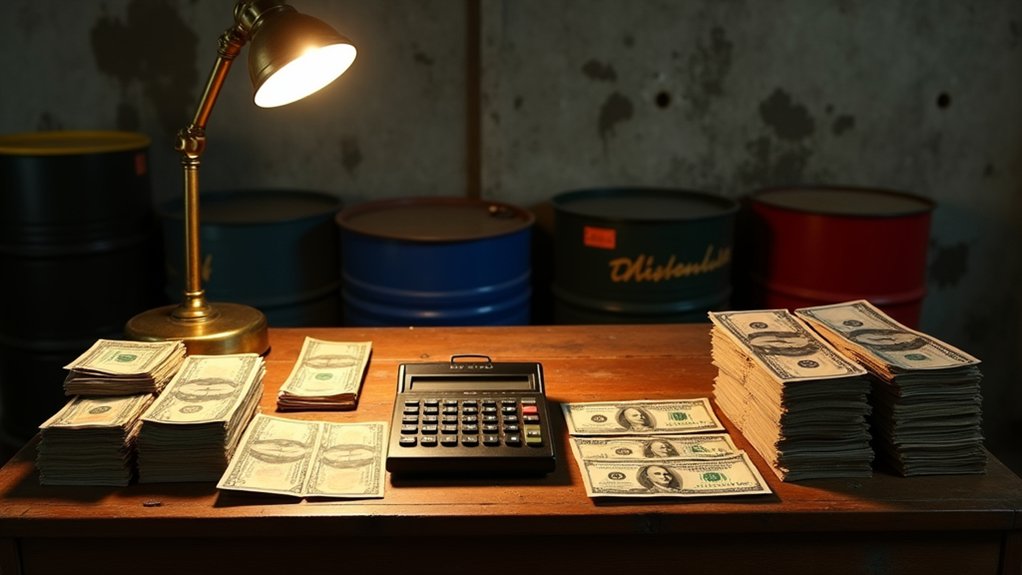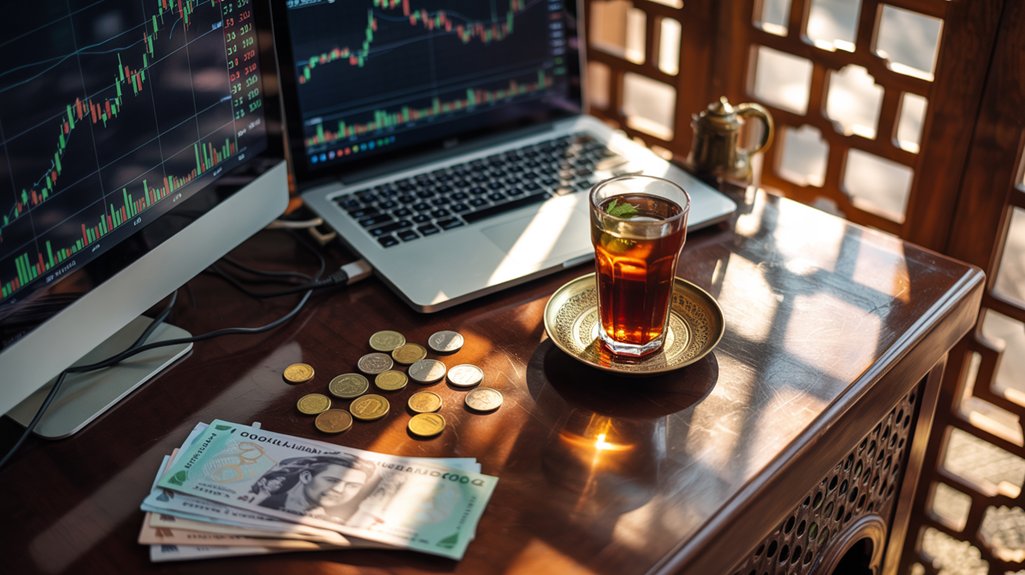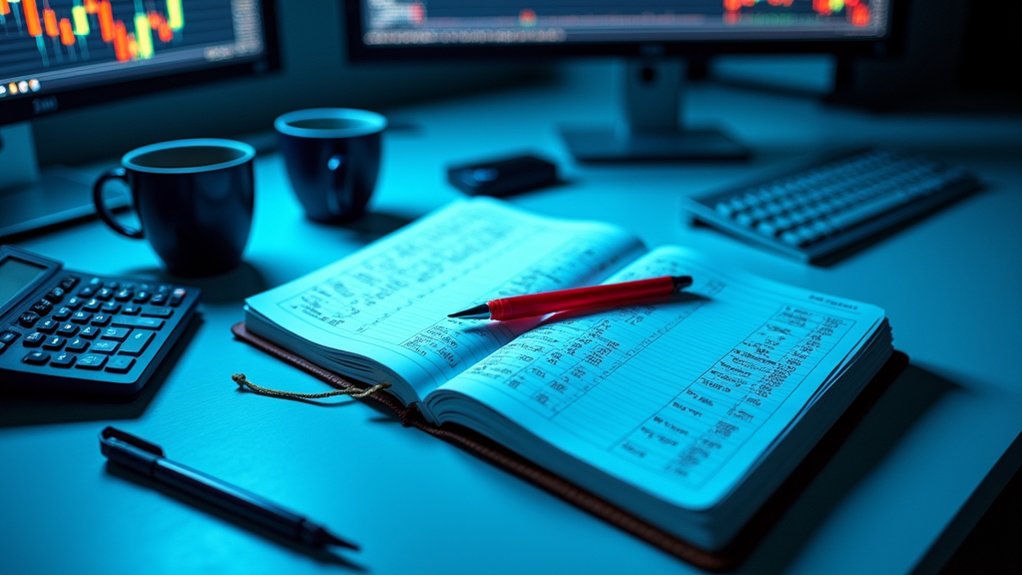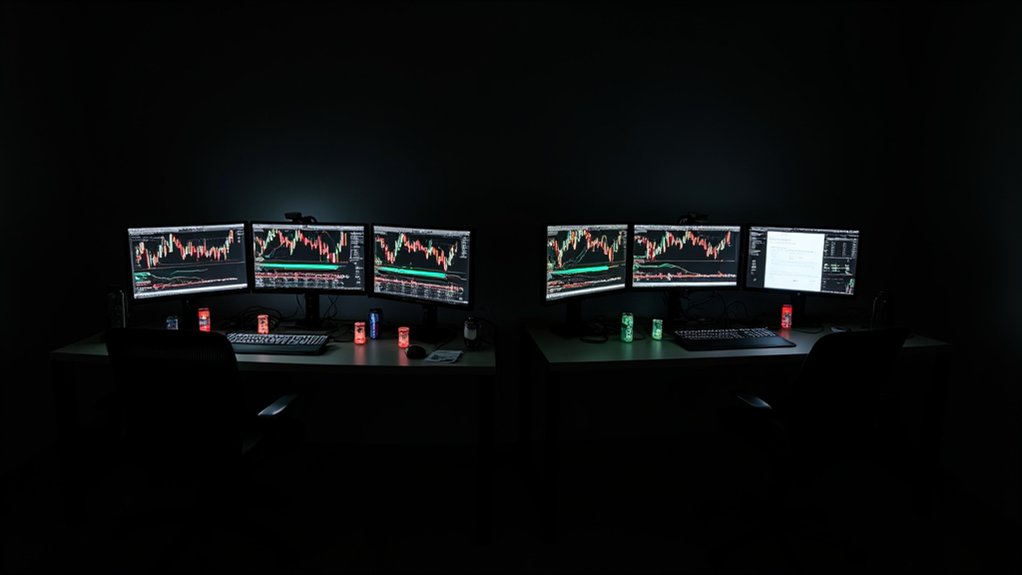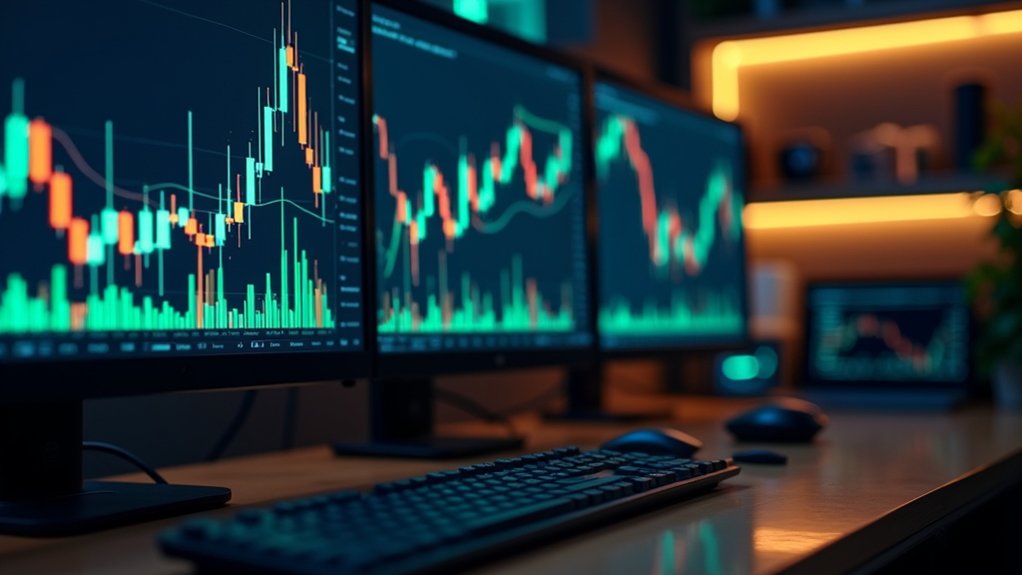Forex trading is technically legal in South Sudan, with 58 licensed bureaus and a central bank supposedly running the show. Reality tells a different story. The currency collapsed nearly 40% in twelve months, inflation hit 107.9%, and a $993 million letter-of-credit scam evaporated into shell companies without a single consequence. Regulatory theater meets billion-dollar impunity. The official framework exists, but enforcement is performative at best. What's written in regulation rarely matches what happens in practice, and the details below explain why that gap matters for anyone considering this market.
Quick Facts That Matter
- Forex trading is legal in South Sudan, contradicting assumptions that civil conflict automatically means prohibition or total market closure.
- The unified auction system replaced dual rates to improve transparency, yet parallel markets persist due to enforcement gaps and ongoing manipulation.
- Licensed forex bureaus operate under nominal central bank oversight, but absence of broker regulation creates protection gaps that contradict licensing legitimacy.
- Billion-dollar letter-of-credit fraud went unpunished, revealing that formal banking channels enable rather than prevent large-scale financial crimes.
- International brokers offer low deposit minimums and accessible platforms despite underdeveloped local infrastructure, defying expectations of inaccessibility.
Overview: Forex Trading in South Soudan
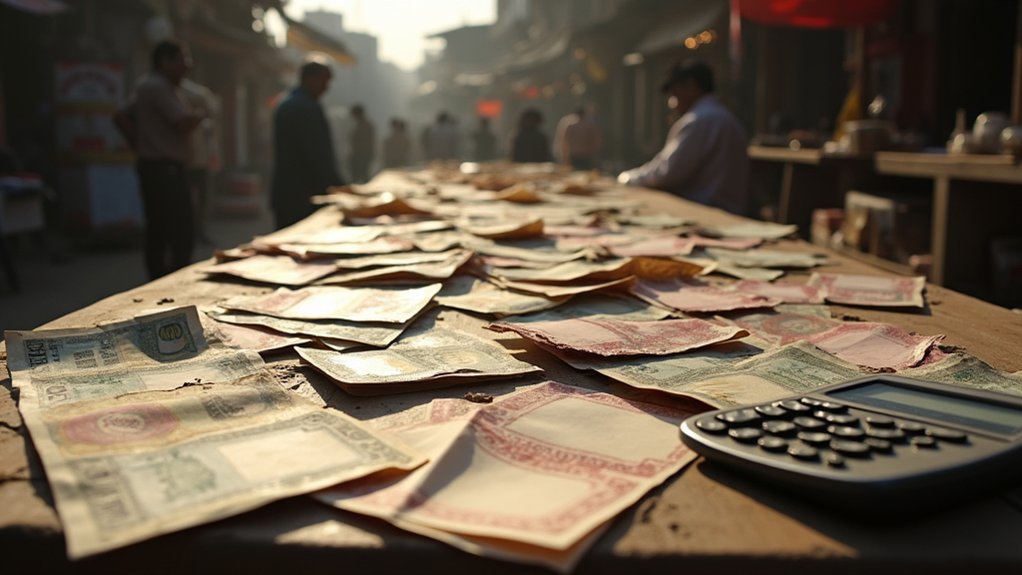
Forex trading in South Sudan exists in one of the world's most volatile currency environments—and that's putting it mildly.
The pound crashed 39.86% in twelve months through November 2025.
The South Sudanese pound collapsed nearly 40% in a year—one of the planet's most brutal currency meltdowns.
Inflation? Try 107.9% in September alone.
Oil exports—over 90% of foreign earnings—stopped cold for a year when Sudan's conflict wrecked the pipeline in February 2024.
The parallel market premium hit 30.8% in June 2025, meaning official rates and street rates lived in different universes.
The Bank of South Sudan restarted forex auctions in October 2025, attempting damage control.
Yet even amid the turbulence, major currencies showed stability through July 2025, with the US Dollar moving less than 6 SSP and regional pairs holding largely flat.
Other African nations grapple with similar currency challenges, from Zimbabwe's multi-currency chaos to persistent parallel market distortions across the continent.
Retail traders face chaos, pure and simple.
Is Forex Trading Legal in South Soudan?

Yes, it's legal—barely regulated, but legal. The Bank of South Sudan oversees forex operations, technically. But don't expect much supervision. The regulatory infrastructure? Underdeveloped would be generous. International financial standards haven't quite made it here yet.
Still, 58 licensed forex bureaus operate with valid licenses under the Bank Supervision Department's Forex Bureau Division. So there's that.
The Central Bank recently issued warnings against illegal operations, threatening “severe legal action.” Which suggests they're trying.
Legal permission exists for individuals and entities. Just don't confuse “legal” with “well-regulated.” Two very different things in South Sudan's forex landscape. Central banks use monetary policy tools to intervene in foreign exchange markets and maintain currency stability.
International brokers like AvaTrade (Official Site 🔗) and PrimeXBT operate here with regulation from overseas jurisdictions, filling the gap left by local oversight.
Who Regulates Forex Trading in South Soudan?

Nobody regulates forex trading in South Sudan. There's no dedicated financial authority, no securities regulator, no specialized forex division. Nothing.
The Bank of South Sudan handles monetary policy and banking supervision, but forex brokers? Not their job. They don't issue licenses. They don't enforce standards. Foreign brokers operate freely without local approval, which sounds convenient until something goes wrong.
No capital requirements exist. No client fund protections. No dispute resolution process. This absence of minimum capital thresholds means brokers lack the reserves needed to withstand market shocks or liquidity disruptions. Without established legal frameworks, traders have no recourse when disputes arise with international brokers. Traders are fundamentally on their own in this regulatory vacuum.
The government hints at future frameworks, but right now? It's the financial Wild West.
How Forex Trading Works in South Soudan

Until 2021, South Sudan operated two completely different foreign exchange markets at the same time, which is exactly as messy as it sounds.
Two exchange rates, one currency, infinite headaches—South Sudan's dual market was economic chaos in action.
The official rate sat at 2.96 SSP per dollar. The parallel market? 18.50. Same currency, wildly different prices.
Oil revenues—95 percent of all foreign currency coming in—collapsed when production shut down for 15 months and prices tanked below $40 per barrel.
The Bank of South Sudan's reserves evaporated.
A unified auction system eventually replaced the dual-rate chaos, letting market forces set prices instead of pretending scarcity didn't exist. Banks could bid up to 20% of total auctioned amounts in these foreign exchange auctions. The benchmark exchange rate for these auctions was calculated daily to establish a consistent valuation standard across the market.
Best Time to Trade from South Soudan

The London-New York overlap—3:00 PM to 6:00 PM Juba time—is when the forex market actually wakes up. EUR/USD and GBP/USD pairs move fast, spreads tighten, and day traders get what they came for: volatility.
Tokyo opens at 3:00 AM, but liquidity's thinner, spreads wider. JPY, AUD, and NZD pairs see action then, though nothing like the afternoon chaos.
Tuesday through Thursday? Best days, no contest. Monday afternoons work after the weekend gap settles.
Friday evenings and late-night sessions from 9:00 PM onward? Dead zones. Major holidays kill volume everywhere. Weekend trading doesn't exist here—markets close Friday, reopen Sunday evening.
Timing your trades by currency pair activity helps you match your strategy to when specific pairs show their strongest liquidity and tightest spreads.
Payments, Deposits and Withdrawals in South Soudan
Knowing when to trade matters, but getting money into an account in the first place? That's the real trick in South Sudan.
Bank wires work. Debit cards too. Skrill, PayPal, even mobile money—brokers like Exness ($10 minimum) and XM (Official Site 🔗) ($5) accept them all. Limited banking infrastructure means traders lean hard on electronic alternatives.
When banks fall short, South Sudanese traders turn to e-wallets and mobile money to access global forex markets.
Withdrawals mirror deposits. Wire transfers, e-wallets, cards. Test a small withdrawal before going all-in, because processing times vary wildly. Protecting against fraud requires using verified payment platforms and double-checking account details before initiating any transfer.
Here's the kicker: South Sudan has no dedicated forex regulator. Zero oversight on transactions. International broker licenses provide the only real fund protection. Cross-border transfers? Navigate those yourself.
Taxes, Reporting and Money Rules in South Soudan
What happens when a trader books a profit in a country with no clear tax rules? Welcome to South Sudan's forex reality.
Tax laws governing trading income don't exist—not clearly, anyway. No established reporting framework. No documentation standards. The Bank of South Sudan manages monetary policy but doesn't oversee retail traders or issue broker licenses.
Trading is legal, sure. But illegal operations? Those get prosecuted. The distinction between legal and illegal remains foggy.
Compliance obligations exist despite undefined requirements. Talk to a local tax professional before celebrating those gains.
The regulatory landscape is evolving. Unlike neighboring markets where currency exchange trading operates within established regulatory frameworks, South Sudan's forex sector remains largely undefined. Maybe tomorrow brings clarity. Maybe not.
Forex Trading Scams and Risks in South Soudan
How does a forex trader protect themselves in a country where billion-dollar financial crimes vanish into shell companies without consequence?
Between 2012-2014, South Sudanese leaders siphoned US$993 million through fake letter of credit schemes. Banks handed over money. No fuel arrived. No food. No medicine. Shell companies got paid anyway. The same people still get government contracts today.
Banks manipulated forex rates between e-money and cash transactions, creating parallel markets that distort everything. The central bank threatens license revocation for violators. But when nearly a billion dollars disappears and perpetrators remain active, enforcement feels like theater.
Traders deposited South Sudanese pounds with Qatar National Bank and CfC Stanbic, then received dollar-denominated letters of credit that were supposed to fund vital imports after the 2012 oil shutdown depleted foreign currency reserves. Beyond these domestic fraud schemes, forex traders also face settlement risk when one party pays the currency it sold but never receives the currency purchased due to counterparty default across different time zones.
Quick Q and A
Can I Trade Forex in South Sudan Using Mobile Money Services?
Forex trading through mobile money services in South Sudan faces significant limitations due to underdeveloped financial infrastructure and lack of regulated brokers accepting local mobile payment methods. Retail traders typically require international banking options and face regulatory uncertainty.
Do South Sudanese Banks Support International Forex Broker Wire Transfers?
South Sudanese commercial banks technically maintain international wire transfer capabilities through correspondence banking relationships with Australia, Kenya, and Uganda. However, U.S. sanctions compliance requirements, processing delays, and limited infrastructure create significant practical obstacles for forex broker transactions.
Which Currency Pairs Are Most Profitable for South Sudanese Traders?
Most profitable pairs depend on individual strategy and market conditions. South Sudanese traders commonly focus on major pairs like EUR/USD, GBP/USD, and USD/JPY due to liquidity, tighter spreads, and abundant analysis resources available through international brokers.
Are VPNS Necessary When Accessing Forex Platforms From South Sudan?
VPNs are not legally required for accessing forex platforms from South Sudan. However, traders may use them to improve connection stability, access broker servers more reliably, or enhance security when using public internet networks.
How Does Internet Connectivity Affect Forex Trading Success in South Sudan?
Internet connectivity directly impacts forex trading success in South Sudan by affecting trade execution speed, price accuracy, and platform reliability. Poor connections cause slippage, missed opportunities, and delayed orders, potentially resulting in significant financial losses for retail traders.
The Bottom Line
South Sudan's forex trading scene isn't what most people expect. It's messy, complicated, and full of contradictions. Traders here deal with real obstacles—weak infrastructure, limited banking, regulatory gray zones. But they're still trading. Still finding workarounds. The obvious conclusion? That forex trading is impossible here? Wrong. It's happening, despite everything. The market doesn't care about conventional wisdom. It just exists, chaotic and persistent, like everything else in this young nation.
